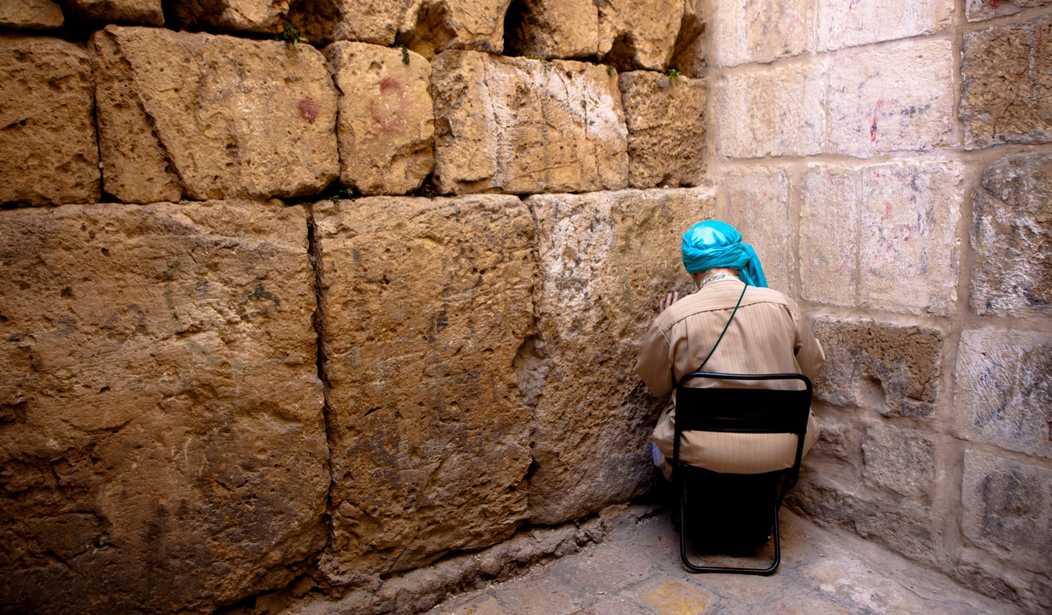A new Pew study on religious observance found that, generally speaking, women are more religious than men. In a biblical sense, this is not surprising. Women are the spiritual compass within marriage, home and family life. In the gendered language of Hebrew words like neshamah and ruach, used to refer to spirit, are feminine nouns. Spiritual wisdom is feminine in nature, as in the book of Proverbs which contains the verses most commonly associated with the Torah, “Her [wisdom’s] ways are pleasant ways and all her paths are peace. She is a tree of life…” Not a believer? Biologists and sociologists have confirmed what the Bible reveals: In God’s eyes women provide the spiritual balance to man’s physical nature. Testosterone or something, baffled academics say.
This is what renders the findings of the Pew survey so ironic. The culture built upon the Hebrew Bible happens to be one of the only cultures in which women pray less than their male counterparts:
Women in Christian countries report more weekly attendance at religious services than men, but the opposite is true in majority Muslim countries and in Israel. This is due in large part to religious norms that prioritize male worship participation in Muslim and Orthodox Jewish societies, the study found.
What’s more depressing is that prayer isn’t the only aspect of religious life adversely affected by “religious norms” that conflict with Torah. In Israel, where the Orthodox hold governing power over religious identity, women are more likely to be turned off to Judaism altogether:
… Israel is also an outlier in the gender gap when it comes to the question of whether respondents considered religion very important to them personally. In 36 of 84 countries, more women than men said religion was very important to them, and in 46 countries roughly equal proportions of each sex said religion was very important, the study found. Only in Israel and Mozambique did more men than women say religion is very important to them.
Perhaps not so ironically, this survey was released on Purim, the Jewish holiday commemorating the most infamous display of female spiritual wiles in our history. Purim is traditionally celebrated with a public reading of the Megillah, the scroll of Esther. One Tel Aviv municipality bowed to the wishes of an Orthodox group, funded by tax dollars, which refused to participate in a community celebration if women participated in the Megillah reading. The incident brings to mind the observation of the Jewish feminist and member of the Original Women of the Wall, Dr. Phyllis Chesler:
I wonder how a self-appointed group could bargain away the rights of Orthodox women and all women to pray with a Torah—wearing tallit, donning tefillin, in an all-female group out loud—in the women’s section at the Kotel.
It is time for Jewish women to reclaim and proudly proclaim our connection to God, not just as a feminist right, but as a female responsibility to our families and our culture. Women’s spirituality is the reminder that tradition alone has not saved us or sustained us. Rather our faith, boldly and proudly proclaimed, is how and why we continue to thrive. Jewish men, like their ancestor Mordecai, also play a key role in this endeavor. They must encourage female participation in public prayer and engagement with Torah. For who is to say what woman among them hasn’t been born for such a time as this?
Also see: Why Is There a Christian Gender Gap?









Join the conversation as a VIP Member